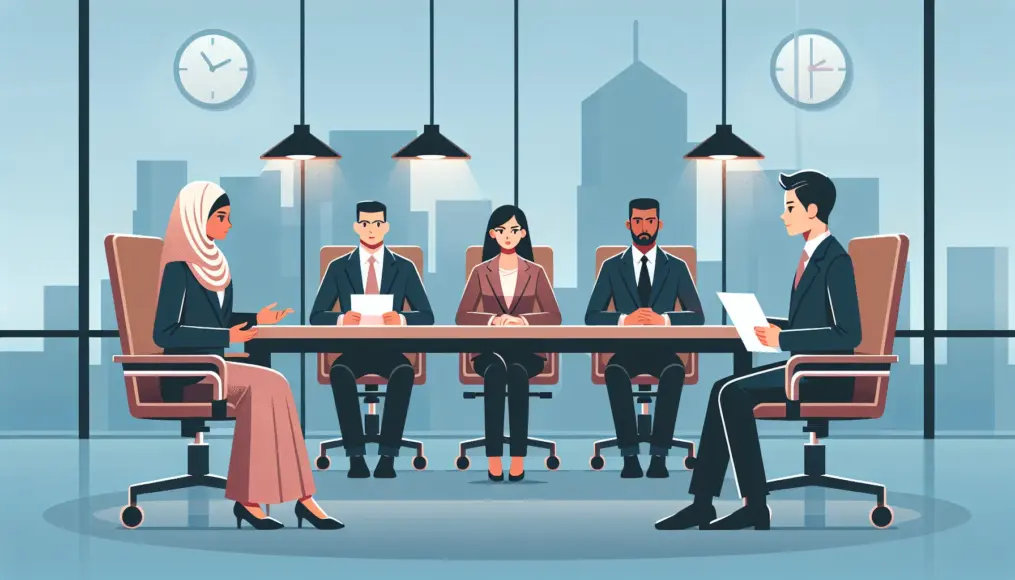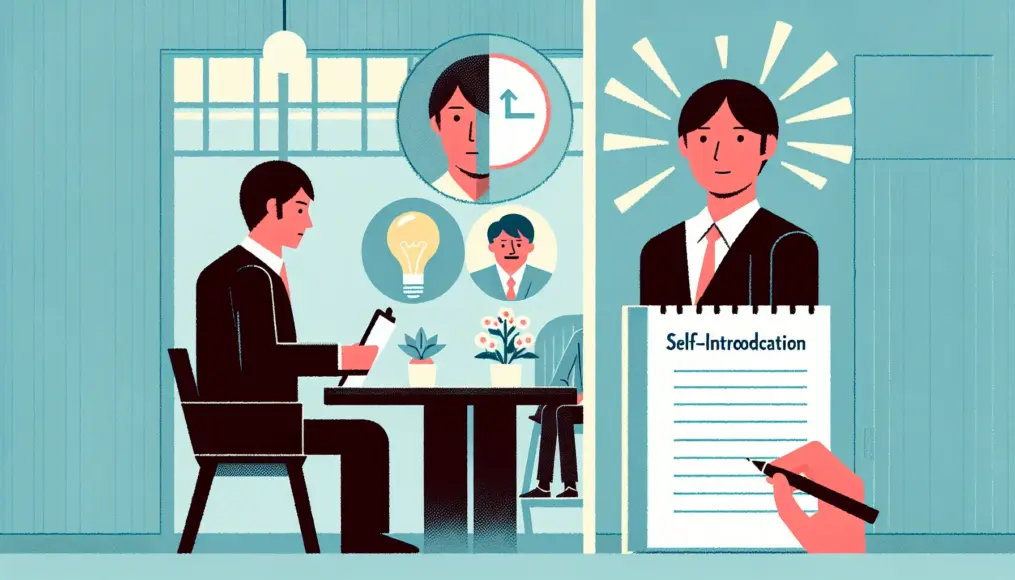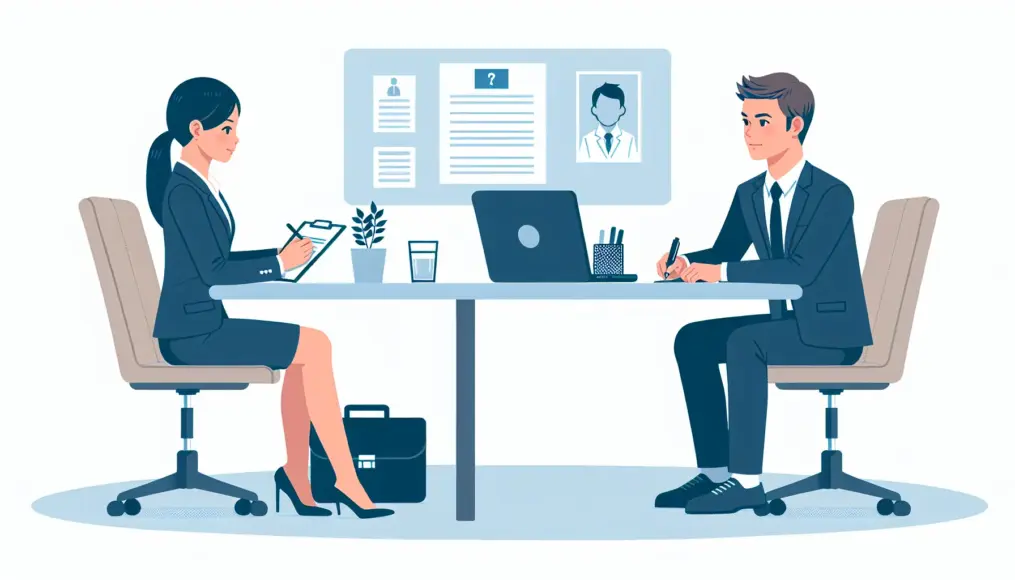Executive interviews carry a unique intensity that sets them apart from standard job interviews. However, with the right techniques under your belt, you can approach these high-stakes meetings with confidence. Executives are particularly adept at discerning the skills and qualities they seek, often posing deep and thought-provoking questions. By preparing in advance, you can seize the opportunity to showcase your strengths effectively.
In this article, we’ll delve into common questions asked during executive interviews, how to craft an impactful self-introduction, and the mindset you should adopt on the day of your interview. Understanding and applying these insights will significantly enhance your chances of success.
Get ready to ace your executive interview and take a step closer to your dream workplace.
- Distinctive Features of Executive Interviews Compared to Standard Ones
- Common Executive Interview Questions and Sample Answers
- Preparing Your Mindset for the Interview Day and Utilizing Reverse Questions
What to Expect in an Executive Interview
Executive interviews hold a unique significance compared to standard interviews. Since members of the upper management are involved, the nature of the questions and the topics discussed often differ. Therefore, in an executive interview, not only are your skills and experience assessed, but your personality and vision for the future are also evaluated. Understanding the characteristics of this type of interview in advance can help you prepare effectively.
Key Differences from Regular Interviews
In an executive interview, you can expect deeper, more probing questions, particularly those related to your vision and values. This approach helps companies identify candidates who can contribute to their long-term success. For instance, you might encounter questions like, “What is your career vision?” or “How can you contribute to our company culture?” It’s essential to have well-formed ideas and articulate answers to these types of questions.
- Executive interviews feature more in-depth questions
- Emphasis on vision and values
- Evaluation aimed at identifying long-term contributors
Essential Skills and Qualities
In executive interviews, technical skills are just one part of the equation; leadership and communication abilities are also highly valued. Executives are looking for candidates who can lead teams effectively and communicate smoothly with others. Additionally, problem-solving skills and strategic thinking are critical, so it’s important to highlight these qualities during your interview.
As you prepare for your executive interview, it’s crucial to grasp the intent behind the interviewer’s questions. If you’re interested in this topic, you might also find this article helpful: “A Guide to Understanding Question Intent for Interview Success”, which offers insights into effective ways to respond to questions.
- Importance of leadership and communication skills
- The significance of problem-solving abilities
- Tips for showcasing strategic thinking
Common Executive Interview Questions
In executive interviews, candidates can expect to encounter memorable questions designed to assess their character and abilities. These inquiries aim to draw out your experiences and perspectives, often focusing on your self-introduction and leadership experience. By preparing for these questions in advance, you can present yourself more effectively.
Key Points for Your Self-Introduction
Your self-introduction is a crucial part of the interview, typically taking place at the very beginning. Here, it’s important to go beyond simply stating your name and work history; you should convey your strengths and values. For instance, sharing specific anecdotes about your growth can leave a lasting impression on the interviewer. It’s essential to craft an introduction that stands out to executives.
- Communicate your strengths and values in your introduction
- Incorporate specific anecdotes
- Find ways to leave a memorable impression on the interviewer
How to Discuss Your Leadership Experience
Questions about leadership experience are also common in executive interviews. Leadership encompasses more than just directing a team; it involves inspiring team members and guiding them toward a shared goal. By using concrete examples to illustrate how you have brought a team together and achieved results, you can build trust with your audience. Mastering an effective way to communicate these experiences is critical.
If you’re interested in learning more about how to convey your self-introduction and leadership experiences in an executive interview, check out this article: “Uncover Hidden Talents in Interviews! Effective Questions and Strategies”. It explores approaches for revealing candidates’ hidden talents and personalities through interview questions, providing valuable insights for your preparation.
- Leadership is about guiding a team
- Use specific examples to explain your experiences
- Focus on building trust through your communication style
Preparing for Executive Interviews: Essential Habits
When preparing for an executive interview, cultivating solid habits is crucial for success. It’s especially important to stay updated on industry trends and continually hone your skills. This preparation allows you to speak confidently during the interview, leaving a positive impression on the executives. Additionally, managing stress is a key element; arriving at the interview in a relaxed state can significantly impact your performance.
Regular Industry Research
Industry research forms the foundation of your interview preparation. By keeping up with the latest trends and developments among competitors, you can engage in specific discussions during the interview. For instance, having knowledge about industry leadership and innovations can facilitate smoother conversations with interviewers. Furthermore, by deepening your understanding of the company’s vision and mission, you can effectively showcase how you align with their corporate culture.
- Stay updated on the latest industry trends
- Gather information on competitors
- Understand the company’s vision and mission
Stress Management Techniques
As you approach the interview, implementing stress management techniques to alleviate nervousness and anxiety is essential. Practices like deep breathing and mindfulness can help calm your mind. Additionally, conducting mock interviews can boost your confidence and prepare you for the real thing. Discovering the stress management methods that work best for you will pave the way for success.
- Practice deep breathing and mindfulness
- Conduct mock interviews
- Find stress management techniques that suit you
How to Prepare for Your Interview Day: Tips and Insights
Interview day can often bring a mix of nerves and anxiety, but with the right mindset, you can approach it with confidence. First impressions carry significant weight, so preparing to showcase your best self is crucial. Moreover, using reverse questions to express your enthusiasm and interest can leave a positive impression on the interviewers.
The Importance of First Impressions
In the first few minutes of the interview, interviewers form strong impressions of you. This makes your attire, demeanor, and greeting especially important. Dressing neatly and greeting with a clear voice create a positive first impression. Additionally, being mindful of your posture and eye contact helps to establish trust and rapport during the conversation.
- First impressions are formed within minutes
- Neat attire is essential
- Pay attention to your posture and eye contact
How to Make an Impression with Reverse Questions
At the end of the interview, asking reverse questions allows you to express your interest in the company and demonstrate your enthusiasm. It’s not only a way to deepen your understanding of the organization, but it also revitalizes communication between you and the interviewer. For example, asking about the company’s vision or recent projects can illustrate how you envision contributing to their goals.
- Reverse questions show your interest in the company
- They enhance communication
- Specific questions highlight your enthusiasm
Summary
Executive interviews are quite different from standard job interviews; they require deeper questions and an understanding of the company culture. To succeed, it’s important to prepare your self-introduction and clearly convey your leadership experiences. Incorporating regular industry research and stress management techniques will also help you approach the interview day with confidence. Understanding the significance of first impressions and demonstrating your enthusiasm for the company through insightful questions are crucial as well.
By putting these strategies into practice, you can enhance your chances of success in an executive interview and take a step closer to your ideal workplace. Make sure to prepare thoroughly and be ready to showcase your best self during the interview.
- Self-introduction and leadership experience are key in executive interviews
- Incorporating industry research and stress management techniques is crucial for success
- Demonstrating your interest in the company through first impressions and insightful questions
Wishing you the best of luck in your interview! If you found this article helpful, please feel free to leave a comment!



Comment